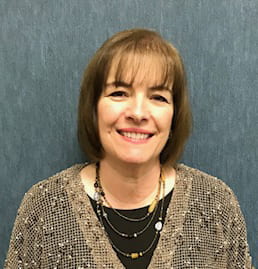Alameda County Public Health Department — Oakland, CA
IMPROVING DIABETES CARE FOR UNDERSERVED COMMUNITIES IN OAKLAND, CA
Alameda County Public Health Department aims to improve care and reduce diabetes-related hospitalizations among low-income African Americans and Latinos living in East Oakland, Hayward, Ashland, and Cherryland.
The program is transforming the delivery of diabetes care by integrating peer educators, community health workers (CHWs), and patient navigators into care teams and training them to help patients develop individualized diabetes management action plans. The Health Department offers social support for people with diabetes by arranging group medical appointments and referring them to services that promote access to healthy food and physical activity, while addressing other needs such as housing, public benefits, and employment.

STRENGTHEN PRIMARY CARE & BUILD SUSTAINABLE PARTNERSHIPS
OUR INTERVENTION APPROACH

Each year, Alameda County Diabetes Disparities Reduction Initiative (ACDDRI) will provide up to 200 people with diabetes access to coordinated care:
- Support from paraprofessionals–including staff and volunteer peer educators, promotoras, Community Health Workers (CHWs), and/or Patient Navigators–who are integrated into multidisciplinary care teams.
- American Diabetes Association-recognized Diabetes Self-Management Education (DSME) classes.
- Diabetes/Hypertension Action Plans, developed and monitored in conjunction with the paraprofessionals and clinicians to address both medical and social determinants of health.
- Expanded opportunities for group medical appointments and other types of group sessions that allow for sharing among patients coping with diabetes and related conditions.
- Improved access to diabetes-appropriate food and improved access to opportunities for physical activity.
- Access or referrals to other needed social supports, including identifying and navigating affordable housing, enrolling in health insurance and public benefits for which they are eligible, and preparing for and finding employment, among others
- Improve access to high quality clinical care for Medicaid and uninsured populations with type 2 diabetes in three pilot clinics.
ACDDRI will transform primary care at two community-based clinics in order to ensure that:
- Paraprofessionals are trained in evidence-based diabetes care management, as well as in case managing for social support needs.
- Multidisciplinary teams better integrate paraprofessionals so that both social and medical determinants of health are addressed.
- Clinics become American Diabetes Association (ADA) Recognized programs for DSME, promoting evidence-based practices and offering clinics additional options to bill third-party payers for DSME.
- Clinics expand their capacity for group medical appointments and innovative care options.
- Clinics expand their capacity to access and analyze diabetes and hypertension outcome data and use it to better manage panels of patients and implement Continuous Quality Improvement (CQI) projects.


Alameda County Public Health Department is focused on supporting unmet medical and social needs:
- As part of the ACDDRI, Alameda County Public Health Department developed a partnership with a local university and their physical therapy program. Students provided physical activity instruction to community members and local health system patients and walking tours were coordinated throughout the county’s local park system.
- Roots Community Health Center, a local clinic involved in the ACDDRI, hosts an on-site food pantry through the Roots Community Market. The market provides patients free access to food at a trusted location where patients connect with their health care teams. Patients receive a fixed number of points with which to shop based on family size. This arrangement offers flexibility and gives patients control over food selection, while simultaneously incentivizing healthy food choices.

Brenda Rueda-Yamashita
Director of the Chronic Disease Program
Brenda Rueda-Yamashita has been the Director of the Chronic Disease program for Alameda County Public Health Department for sixteen years. Prior to Alameda County she worked for three years at California Department of Public Health, Diabetes Prevention and Control Program, promoting the use of evidence based guidelines for diabetes care. Brenda has experience in diabetes and asthma in both the adult and pediatric populations. She is a past Chair of the Diabetes Coalition of California and locally Chairs the Diabetes Committee for the Ethnic Health Institute. She is a participating member of the Alameda County Asthma Coalition. Brenda graduated from St. Mary’s College in Moraga, CA with a BA in Health Service Administration.

Copyright © 2021 — The University of Chicago
